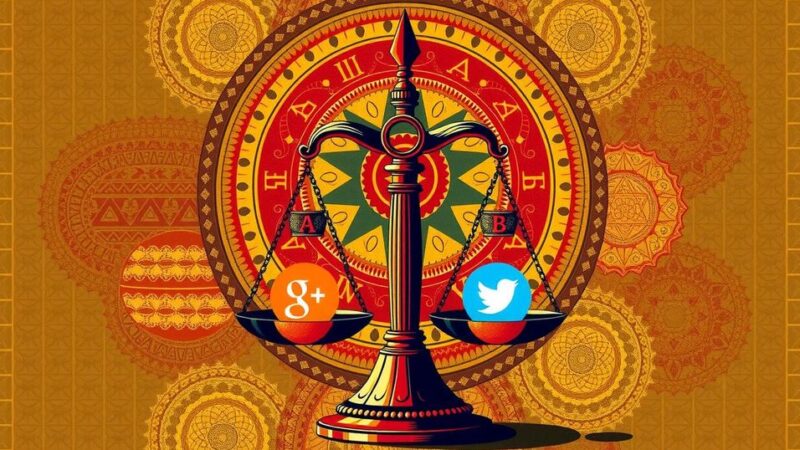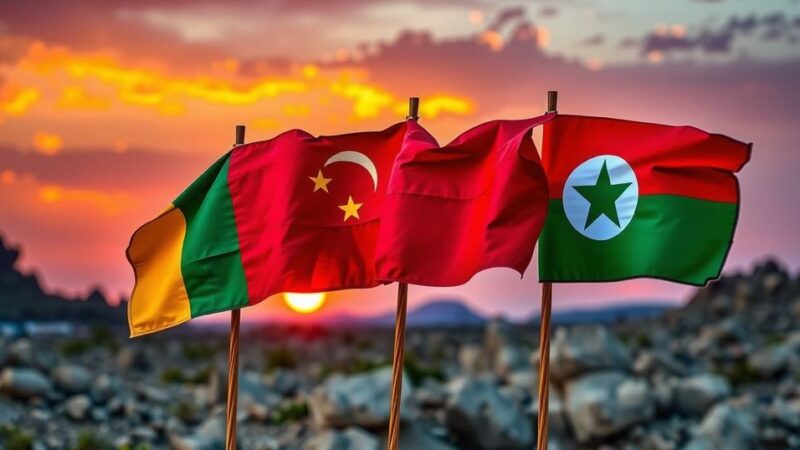On January 30, a press conference in Dhaka revealed rising violence against religious minorities in Bangladesh. The international community has largely overlooked these incidents, leading to calls for attention and action. A demonstration in Rome focused on this issue amidst rising extremism targeting Christians and Hindus. Human rights organizations and international bodies urge the Bangladeshi government to enact protections as victims report inadequate law enforcement response.
On January 30, the Bangladesh Hindu Buddhist Christian Unity Council conducted a press briefing in Dhaka to inform the global media about the ongoing violence against religious minorities in Bangladesh. This issue has received limited coverage in international media, leading to a general overlook of these acts of violence by the global community.
The prevalence of violence against Christians, Hindus, and other religious minorities in Bangladesh has surged alarmingly. There is a disturbing rise in extremism with many incidents of violence reported against these groups and their sanctuaries. Discrimination against these minorities is manifesting in various societal aspects, notably in employment, education, and access to justice.
Bangladesh is a signatory to significant international human rights conventions, including the Universal Declaration of Human Rights and the International Covenant on Civil and Political Rights, highlighting the contradiction between its commitments and the reality of religious persecution occurring within its borders.
Amidst these developments, civil society organizations have taken initiatives, such as the “Demonstration for Peace” on February 3 at Piazza dei Santi Apostoli in Rome, aiming to draw attention to the dire situation faced by minorities in Bangladesh. Senator Giulio Terzi di Sant’Agata expressed deep concern regarding the international community’s silence on this alarming situation.
Human rights organizations indicate that escalating sectarian violence is driven by extremist factions seeking to disenfranchise religious minorities in a predominantly Muslim nation. Numerous victims have reported insufficient protection from law enforcement agencies and a lack of timely judicial recourse against the perpetrators.
Since last August, religious and ethnic minorities have been systematically targeted in Bangladesh, with looting, violence against their places of worship, and general silence from the state machinery, which often dismisses these incidents as political violence rather than addressing the underlying religious motives.
International human rights organizations, such as the United Nations and Amnesty International, have called on the Bangladeshi authorities to adopt immediate measures to safeguard religious minorities, including enforcing laws against religious violence and enhancing security for these communities.
Himanshu Gulati, a Member of the Nordic Parliament, emphasized the collective responsibility of global leaders to advocate for justice and the protection of individuals regardless of their religious identity. He indicated that he has raised this critical issue with the Norwegian government.
Global stakeholders are encouraged to exert diplomatic and economic pressure on Bangladesh to honor its human rights commitments. Civil society organizations emphasize the necessity for heightened awareness and intervention to avert further violent acts against these communities.
The demonstration and press conference organized by the Bangladesh Hindu Buddhist Christian Unity Council emerge in the context of escalating persecution of religious minorities in Bangladesh. Extremism is growing, prompting a surge in violent incidents against Christians, Hindus, and other minority groups since last year. Despite Bangladesh’s ratification of significant international human rights treaties, systemic discrimination and targeted violence continue to plague these communities, leading to calls for international attention and intervention.
The situation for religious minorities in Bangladesh has become increasingly perilous, with rising violence and discrimination that contradict the country’s commitments to uphold human rights. International bodies and civil societies are pressing for stronger action and awareness to protect these vulnerable groups from ongoing persecution. Global leaders are urged to take a stand for justice and intervene to prevent further atrocities against these minorities.
Original Source: economictimes.indiatimes.com






